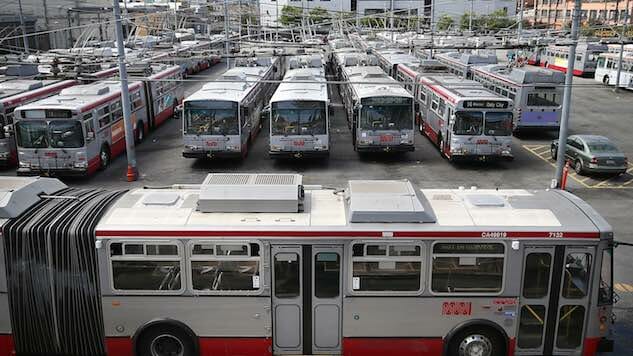Here’s What Really Happens When Homeless People Are Bussed Out of Your City
Photo by Justin Sullivan/Getty
Beginning in the late 1980s, American cities started trying out a new strategy in dealing with their rising problems regarding homelessness. Well, not really new, because the strategy was actually as old as time: pass the problem on to somebody else.
New York City was the first American city to bus its homeless citizens somewhere else by giving them free one-way tickets. It’s a practice that has ballooned in recent years, with thousands of homeless people relocating every year. And in a new study, The Guardian becomes the first publication to look at the long-term effects the practice has on the people it relocates.
The Guardian was granted access to datasets following thousands of homeless people, and spotlights several specific cases. These anecdotes reveal people who are endlessly grateful to the relocation programs, others who felt betrayed by them, and still more who felt they hadn’t received much of anything from them.
-

-

-

-

-

-

-

-

-

-

-

-

-

-

-

-

-

-

-

-

-

-

-

-

-

-

-

-

-

-

-

-

-

-

-

-

-

-

-

-








































